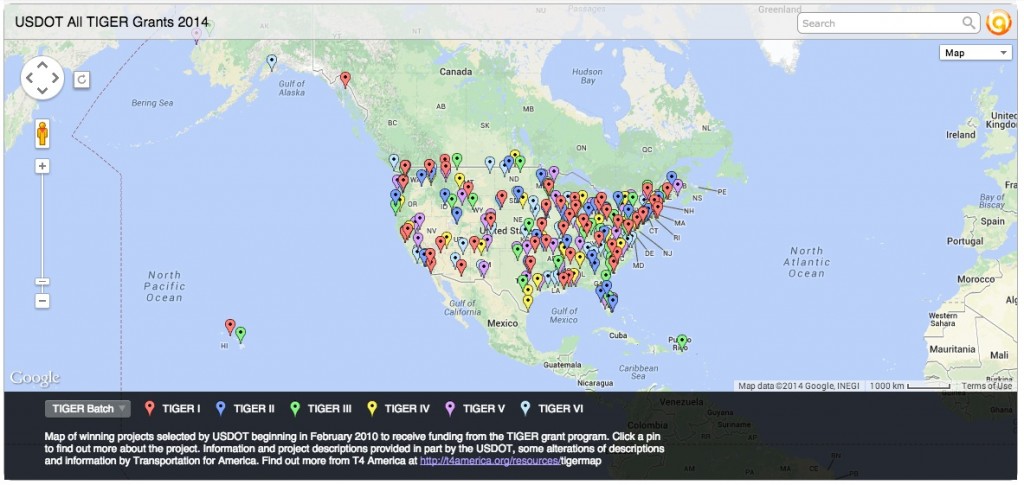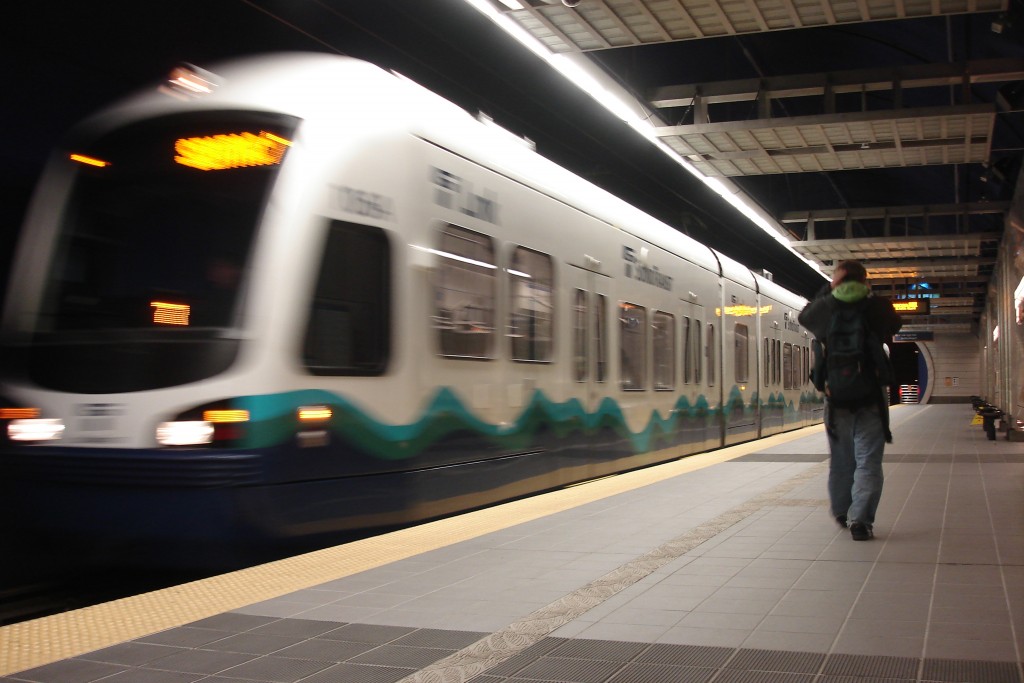Though Congress passed a transportation bill, funding for key programs still up in the air
Though Congress passed a five-year transportation bill back in December, the fate of many important transportation programs will still be decided in Congress’ appropriations process this year. Among them is one of the few ways that local communities can directly receive funding for smart projects.

The TIGER competitive grant program is one of the few ways that local communities of almost any size can directly receive federal dollars for their priority transportation projects. Unlike the overwhelming majority of all federal transportation dollars that are awarded via formulas to ensure that everyone gets a share, regardless of how they plan to spend it, TIGER projects compete against each other and are selected on their merits to ensure that each dollar is spent in the most effective way possible.
This competition spurs innovation, leverages federal funding by matching it with greater local dollars and awards funding to projects that provide a high return on investment. Choosing projects based on their potential benefits is exactly the direction that transportation spending needs to move in, and we need to ensure that this vital program continues.
Because TIGER was not even authorized in the five-year FAST Act and therefore wholly lacks any certainty of funding, congressional appropriators play an incredibly important role in deciding once again how much funding to provide for TIGER (and other key transportation programs) in the coming year. We want to ensure that the Senate’s key committee begins the process by providing at least the full $500 million they’ve provided in the past.
Members of Congress need to hear from you today. Do you represent a city, county, metro planning organization, or other group? We’re looking for these sorts of groups to sign a letter to the Senate Appropriations Committee in support of these programs. (We are not targeting individual letters at this time.)
But TIGER isn’t the only crucial program that appropriators will decide in the coming weeks of 2016. The federal government’s primary resource for supporting new, locally-planned and supported transit expansion projects is also up in the air. The New and Small Starts programs have facilitated the creation of dozens of new or extended public transportation systems across the country, awarded competitively to the best projects.

Sound Transit’s LINK light rail on the Seattle-SeaTac line. LINK is being expanded by a combination of local funds approved by voters and federal New Starts funds.
Under this program, FTA awards grants on a competitive basis for large projects that cannot traditionally be funded from a transit agency’s annual formula funds. Congress already recognized the importance of this program in the FAST Act when they increased its authorization by $400 million for this fiscal year.
But now we need to ensure that the federal appropriators actually provide that level of funding here in the critical moment.
You may have seen the news of President Obama’s budget being released a few weeks ago, which asked for $1.2 billion more for these transit capital grants compared to what was in the FAST Act. While the President makes a request and Congress actually makes the budget, that list of transit projects included in the President’s budget does show which projects would be in front of the queue if Congress comes through with the money this year or next.
That list included Indianapolis’ ambitious plan for a new north-south bus rapid transit line through the city from the suburbs on one side to the other, an expansion of Seattle’s LINK light rail system that will be supported by new local revenues approved on the ballot late last year, and projects to add new capacity to Chicago’s strapped Red Line.
Both of these critical programs — TIGER and transit grants — provide unique, cost-effective, and innovative solutions that also leverage private, state, and local investment to solve complex transportation and spur economic development.
Do you represent a city, county, metro planning organization, or other local/state group? We’re looking for those groups to sign a letter to the Senate Appropriations Committee in support of these programs. Find out more here. (We are not targeting individual letters at this time.)




















Pingback: Today’s Headlines | Streetsblog St. Louis